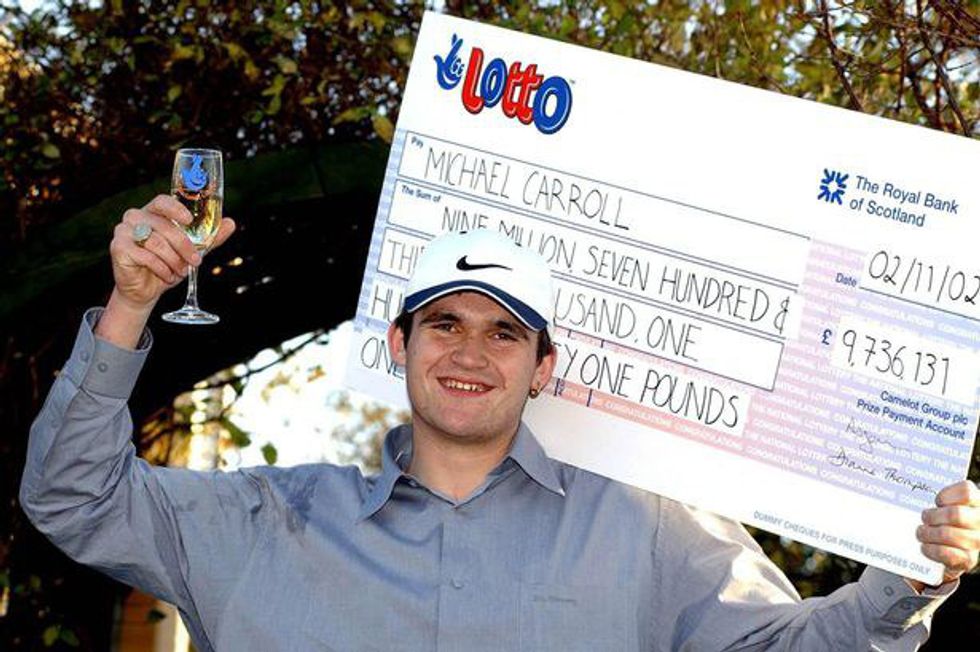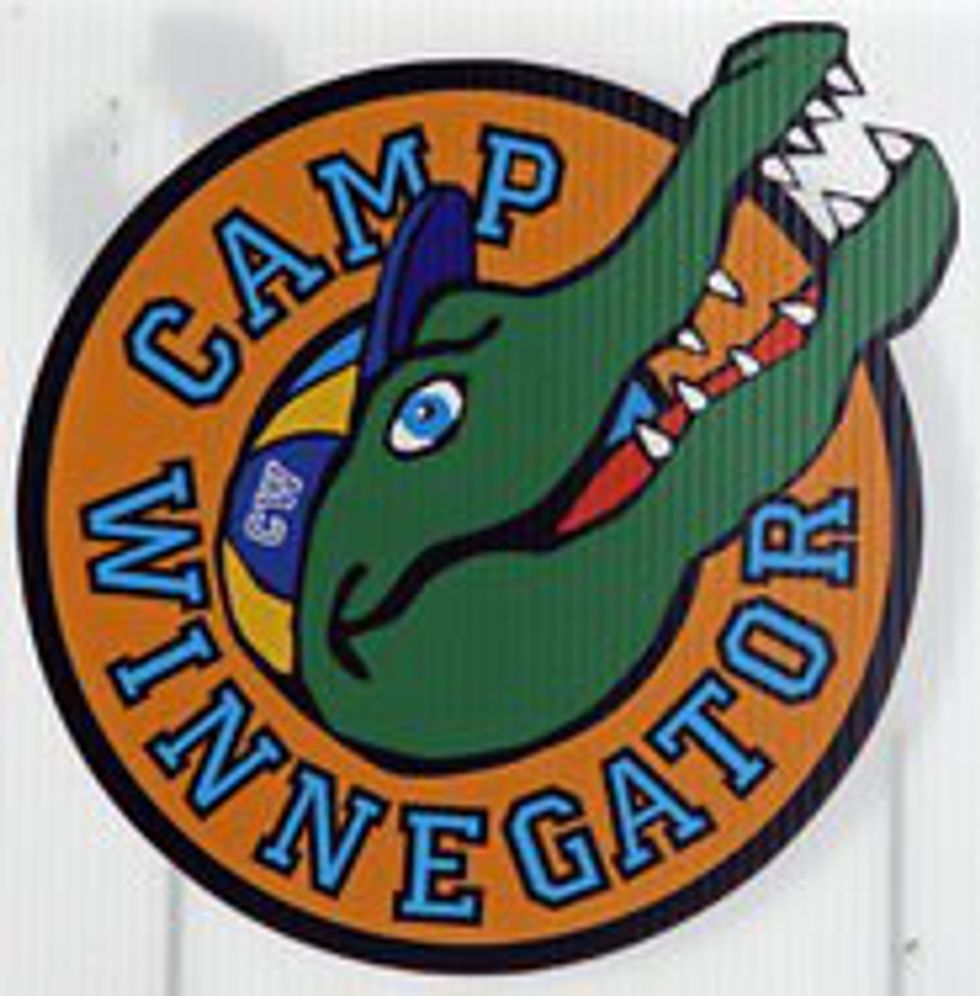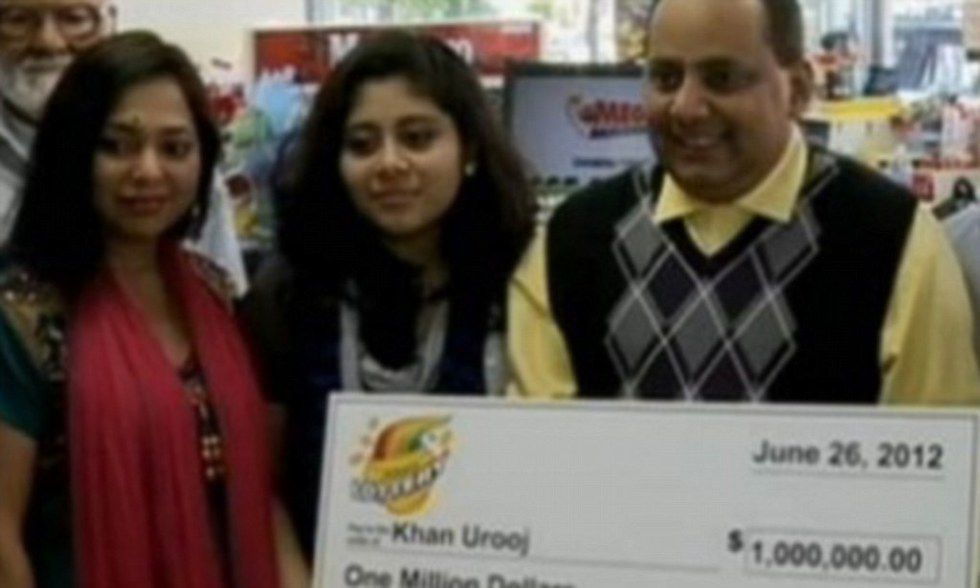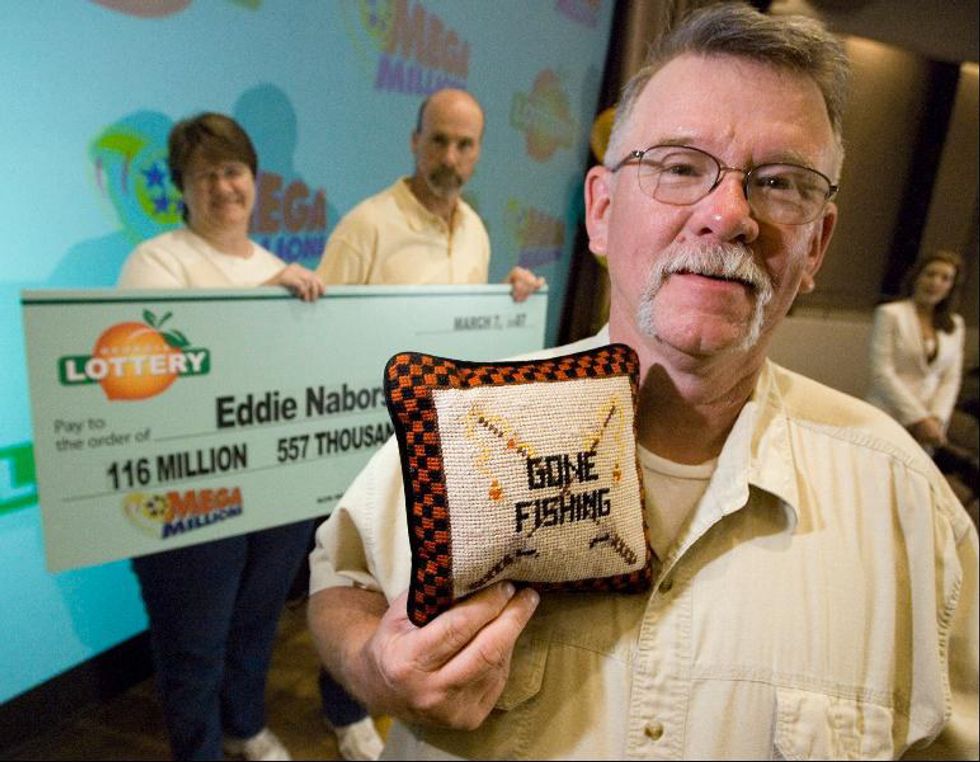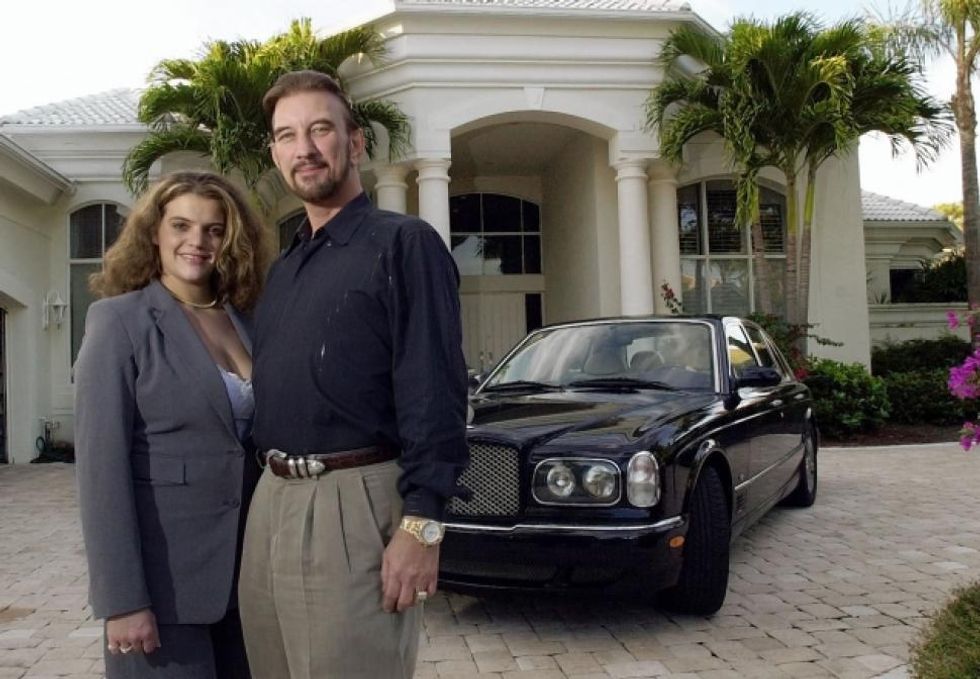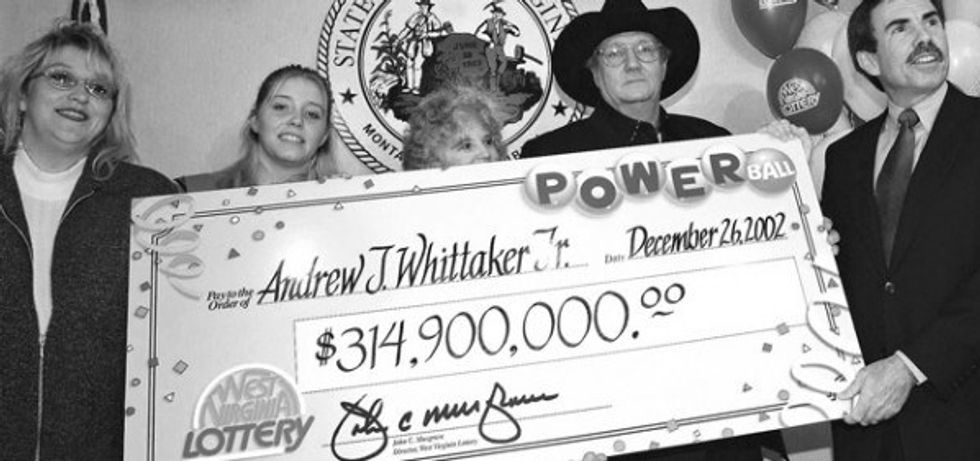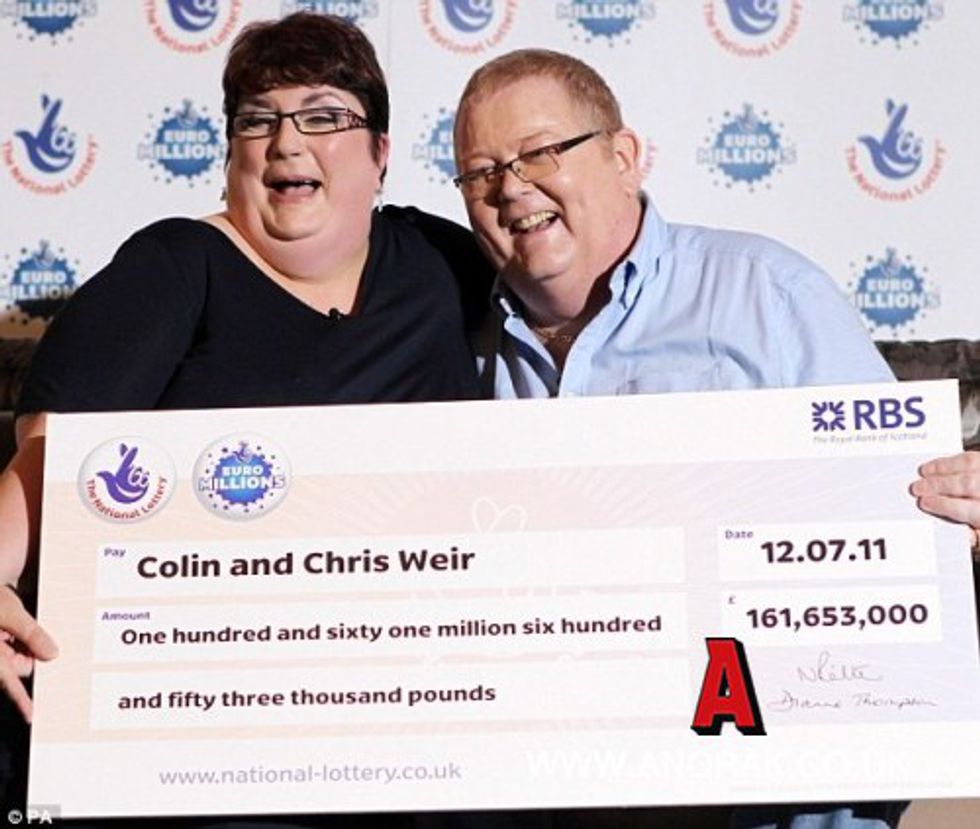Unless you have been living under a rock for the past couple of weeks, you have heard that the Powerball has climbed to an astounding $1.5 billion dollars. Friends, family, colleagues, and maybe even yourself have helped pitched into the game of chance in hopes to obtain the winning ticket. It is safe to assume that we relate money to happiness. But before you go out and risk striking it rich, take into account the stories of these lucky winners and how their million-dollar prize transformed their life.
1. Michael Carroll
“The Lotto Lout” was a nickname given to Michael Carroll after winning $15 million back in 2002. Carroll was only 19 when he gained his fortune, spending millions on jewelry, drugs, hookers, and cars. After dishing out on a villa in Spain, wild parties, demolition derby cars, quad bikes, and more, Carroll was left with nothing but convictions of felony drug charges. The Daily Mail claims he now works at the Walkers Shortbread factory in Scotland and has his own biography suitably titled, “Careful What You Wish For.”
2. Les Robins
Other winners have managed to steer away damage and cause some good. In 1993, Fond du Lac native Les Robins won the $111 million jackpot. With his newfound fortune, the former middle school teacher purchased 226 acres of land where he then built a day camp for children. Bill Glauber of the Journal Sentinel notes that Camp Winnegator inspires children ages 6-16 to disconnect from their devices and enjoy the great outdoors. The lakeside property has successfully invited children to ride horses, practice painting, and appreciate nature for over 20 years.
3. Urooj Khan
Back in 2012, 46-year-old Urooj Khan won $1 million just one day before being killed from cyanide poisoning. According to Nicole Bitette from New York Daily News, Khan’s sister-in-law and her father were the only suspects questioned in the involvement of the poisoning, but were never charged. The money was divided between his wife and daughter.
4. Ed Nabors
$390 million didn’t phase former truck driver Ed Nabors. After claiming his prize, the Georgia native revealed his future plans: “I’m going fishing.” Nabors told the Today Show he used the money to pay off mortgages for his family and a brand new boat to help him do what he does best.
5. David Edwards
After a history of crime and drug addiction, David Edwards won $27 million in 2001 while living unemployed in South Florida. His earnings were quickly blown on a Palm Beach Gardens mansion, Learjet, Lamborghini Diablo, racehorses, startup businesses, and other luxuries. Within his first year of hitting the jackpot, Edwards had spent a total of around $12 million. From rags to riches, he still suffered through the realms of addiction and had multiple run-ins with the police. In an online obituary by Rolling Out, A.R Shaw explains that after just a few years of living lavish, Edwards had spent all his earnings and was driven out of his mansion and into a storage unit encased with human feces. In 2013, Edwards died alone in Hospice care at the age of 58.
6. Jack Whittaker
Bloomberg's David Samuels explains one of the most tragic stories in lottery history. Millionaire Jack Whittaker struck even richer after purchasing a Powerball ticket at a local supermarket in 2002. The $315 million jackpot was put towards Christian communities and building churches. It also helped establish the Jack Whittaker foundation, which provided food and clothing to low-income families. The lottery curse soon caught up to Whittaker as he faced multiple assault charges and a DWI. The 55-year-old and his wife divorced, and in 2004, his granddaughter died of a drug overdose. Five years later, his daughter died of unknown causes.
7. Colin and Christine Weir
For some, acquiring large assets means giving back to those in need. Colin and Christine Weir sought out to find individuals susceptible to help. Since 2011, their $250 million prize has helped changed the lives of children, including a child in need of a prosthetic limb, a gifted young artist, and a three-year-old girl with cerebral palsy. The couple also established the Weir Charitable Trust to support Scottish-based community groups and encourage the advancement of society.
In a money-driven society, it becomes natural to reach out for that billion-dollar cash prize, but it is important to remember all of the things that money can’t buy. Wealth does not amount to success. After all, it was not the money that made Bill Gates rich.




